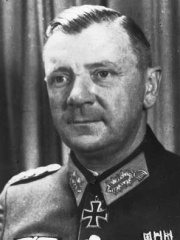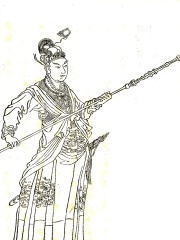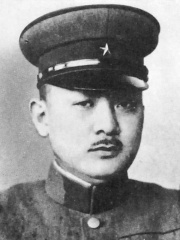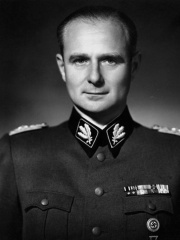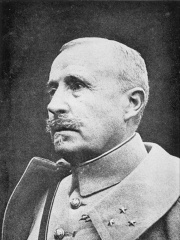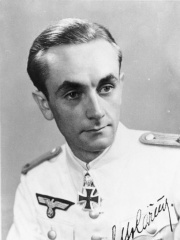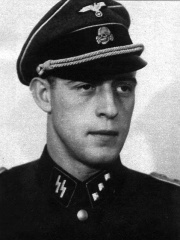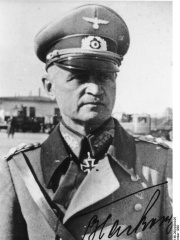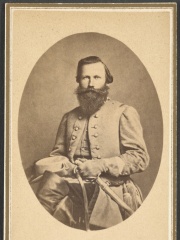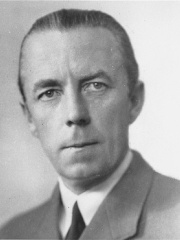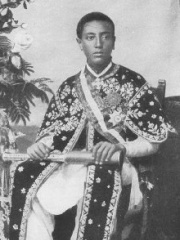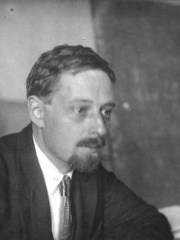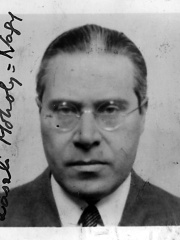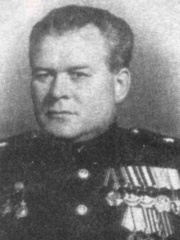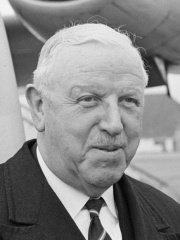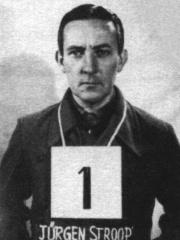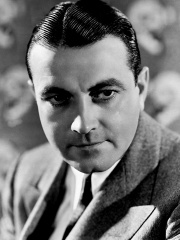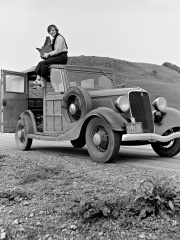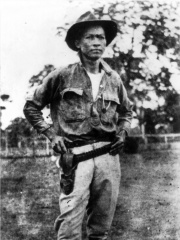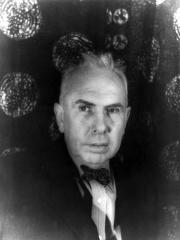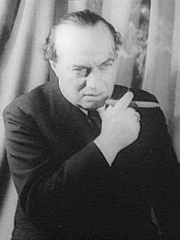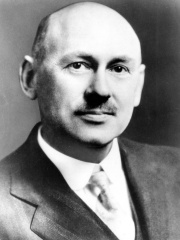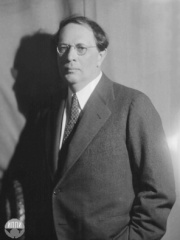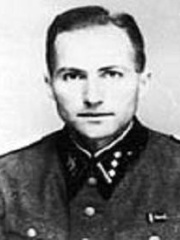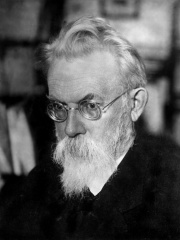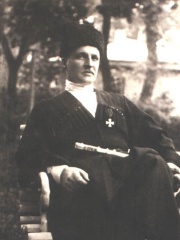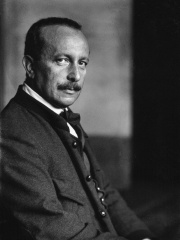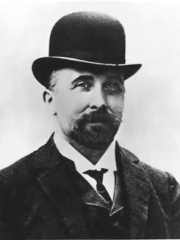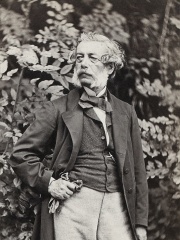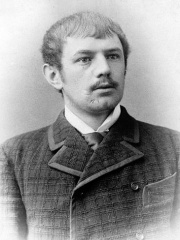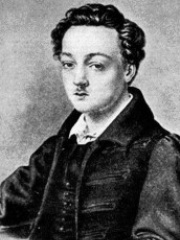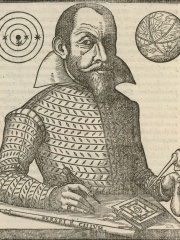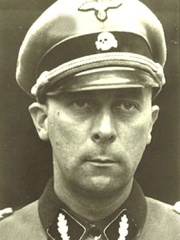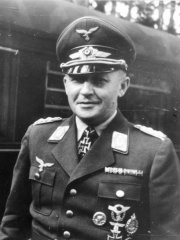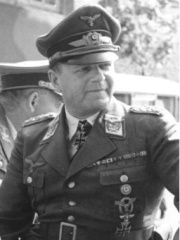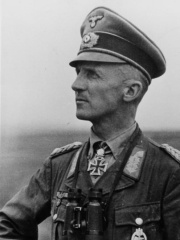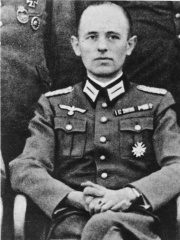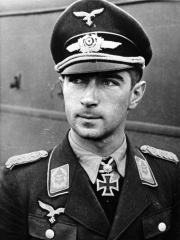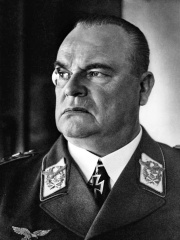MILITARY PERSONNEL
Oskar Dirlewanger
1895 - 1945
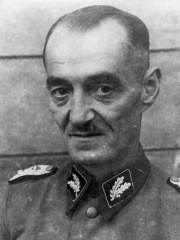
 Oskar Dirlewanger
Oskar Dirlewanger
Oskar Paul Dirlewanger (26 September 1895 – c. 7 June 1945) was a German military officer, convicted child molester, and war criminal. He is best known for commanding the Dirlewanger Brigade, a penal military unit of the Waffen-SS which served in World War II. Dirlewanger's unit is often considered the most notorious Waffen-SS unit, committing some of the conflict's most infamous atrocities, with Dirlewanger himself regarded as perhaps Nazi Germany's "most extreme executioner", engaging in constant acts of violence, rape, and murder. He died after the war while in Allied custody. Dirlewanger had an impressive career as a junior officer during World War I. He fought in the post-World War I conflicts in Germany as a minor commander in the Freikorps militia movement, with the troops he led then also characterized by excessive violence, and participated in the Spanish Civil War. Read more on Wikipedia
His biography is available in 34 different languages on Wikipedia (up from 32 in 2024). Oskar Dirlewanger is the 274th most popular military personnel (down from 203rd in 2024), the 686th most popular biography from Germany (down from 502nd in 2019) and the 58th most popular German Military Personnel.
Oskar Dirlewanger was a Nazi officer in the SS who is most famous for his command of the SS-Sonderkommando Dirlewanger, a unit of the Waffen-SS that was responsible for mass killings, punitive expeditions, and the destruction of Warsaw.
Memorability Metrics
Page views of Oskar Dirlewanger by language
Among MILITARY PERSONNELS
Among military personnels, Oskar Dirlewanger ranks 274 out of 2,058. Before him are Wilhelm Burgdorf, Han Xin, Sejanus, Tadamichi Kuribayashi, Lothar Rendulic, and Karl Wolff. After him are Robert Nivelle, Otto Carius, Otto Günsche, Johannes Blaskowitz, J. E. B. Stuart, and Marcus Claudius Marcellus.
Most Popular Military Personnels in Wikipedia
Go to all RankingsWilhelm Burgdorf
1895 - 1945
HPI: 70.70
Rank: 268
Han Xin
231 BC - 196 BC
HPI: 70.69
Rank: 269
Sejanus
20 BC - 31
HPI: 70.69
Rank: 270
Tadamichi Kuribayashi
1891 - 1945
HPI: 70.67
Rank: 271
Lothar Rendulic
1887 - 1971
HPI: 70.67
Rank: 272
Karl Wolff
1900 - 1984
HPI: 70.65
Rank: 273
Oskar Dirlewanger
1895 - 1945
HPI: 70.64
Rank: 274
Robert Nivelle
1856 - 1924
HPI: 70.61
Rank: 275
Otto Carius
1922 - 2015
HPI: 70.60
Rank: 276
Otto Günsche
1917 - 2003
HPI: 70.56
Rank: 277
Johannes Blaskowitz
1883 - 1948
HPI: 70.55
Rank: 278
J. E. B. Stuart
1833 - 1864
HPI: 70.53
Rank: 279
Marcus Claudius Marcellus
268 BC - 208 BC
HPI: 70.50
Rank: 280
Contemporaries
Among people born in 1895, Oskar Dirlewanger ranks 47. Before him are Folke Bernadotte, Lij Iyasu of Ethiopia, Vladimir Propp, László Moholy-Nagy, Wilhelm Burgdorf, and Vasily Blokhin. After him are Stanley Rous, Jürgen Stroop, Richard Barthelmess, Babe Ruth, Dorothea Lange, and Augusto César Sandino. Among people deceased in 1945, Oskar Dirlewanger ranks 58. Before him are Theodore Dreiser, Franz Werfel, Robert H. Goddard, Karl-Otto Koch, Wilhelm Burgdorf, and Tadamichi Kuribayashi. After him are Heinrich Wölfflin, Aleksey Nikolayevich Tolstoy, Ludwig Stumpfegger, Vladimir Vernadsky, Pavlo Skoropadskyi, and Felix Salten.
Others Born in 1895
Go to all RankingsFolke Bernadotte
DIPLOMAT
1895 - 1948
HPI: 71.72
Rank: 41
Lij Iyasu of Ethiopia
POLITICIAN
1895 - 1935
HPI: 71.27
Rank: 42
Vladimir Propp
CRITIC
1895 - 1970
HPI: 71.14
Rank: 43
László Moholy-Nagy
DESIGNER
1895 - 1946
HPI: 71.06
Rank: 44
Wilhelm Burgdorf
MILITARY PERSONNEL
1895 - 1945
HPI: 70.70
Rank: 45
Vasily Blokhin
POLITICIAN
1895 - 1955
HPI: 70.65
Rank: 46
Oskar Dirlewanger
MILITARY PERSONNEL
1895 - 1945
HPI: 70.64
Rank: 47
Stanley Rous
BUSINESSPERSON
1895 - 1986
HPI: 70.19
Rank: 48
Jürgen Stroop
POLITICIAN
1895 - 1952
HPI: 70.14
Rank: 49
Richard Barthelmess
ACTOR
1895 - 1963
HPI: 70.11
Rank: 50
Babe Ruth
BASEBALL PLAYER
1895 - 1948
HPI: 70.10
Rank: 51
Dorothea Lange
JOURNALIST
1895 - 1965
HPI: 70.09
Rank: 52
Augusto César Sandino
SOCIAL ACTIVIST
1895 - 1934
HPI: 69.57
Rank: 53
Others Deceased in 1945
Go to all RankingsTheodore Dreiser
WRITER
1871 - 1945
HPI: 71.39
Rank: 52
Franz Werfel
WRITER
1890 - 1945
HPI: 71.31
Rank: 53
Robert H. Goddard
PHYSICIST
1882 - 1945
HPI: 71.26
Rank: 54
Karl-Otto Koch
MILITARY PERSONNEL
1897 - 1945
HPI: 70.81
Rank: 55
Wilhelm Burgdorf
MILITARY PERSONNEL
1895 - 1945
HPI: 70.70
Rank: 56
Tadamichi Kuribayashi
MILITARY PERSONNEL
1891 - 1945
HPI: 70.67
Rank: 57
Oskar Dirlewanger
MILITARY PERSONNEL
1895 - 1945
HPI: 70.64
Rank: 58
Heinrich Wölfflin
HISTORIAN
1864 - 1945
HPI: 70.43
Rank: 59
Aleksey Nikolayevich Tolstoy
WRITER
1883 - 1945
HPI: 70.20
Rank: 60
Ludwig Stumpfegger
POLITICIAN
1910 - 1945
HPI: 70.20
Rank: 61
Vladimir Vernadsky
BIOLOGIST
1863 - 1945
HPI: 70.07
Rank: 62
Pavlo Skoropadskyi
POLITICIAN
1873 - 1945
HPI: 69.89
Rank: 63
Felix Salten
WRITER
1869 - 1945
HPI: 69.56
Rank: 64
In Germany
Among people born in Germany, Oskar Dirlewanger ranks 686 out of 7,253. Before him are Erwin Neher (1944), Felix Hoffmann (1868), Franz Xaver Winterhalter (1805), Karl Wolff (1900), Ottmar Hitzfeld (1949), and Dietrich Eckart (1868). After him are Georg Büchner (1813), Otto Carius (1922), Simon Marius (1573), Arno Breker (1900), Hans Holbein the Elder (1465), and Otto Günsche (1917).
Others born in Germany
Go to all RankingsErwin Neher
BIOLOGIST
1944 - Present
HPI: 70.67
Rank: 680
Felix Hoffmann
CHEMIST
1868 - 1946
HPI: 70.66
Rank: 681
Franz Xaver Winterhalter
PAINTER
1805 - 1873
HPI: 70.65
Rank: 682
Karl Wolff
MILITARY PERSONNEL
1900 - 1984
HPI: 70.65
Rank: 683
Ottmar Hitzfeld
COACH
1949 - Present
HPI: 70.64
Rank: 684
Dietrich Eckart
WRITER
1868 - 1923
HPI: 70.64
Rank: 685
Oskar Dirlewanger
MILITARY PERSONNEL
1895 - 1945
HPI: 70.64
Rank: 686
Georg Büchner
WRITER
1813 - 1837
HPI: 70.62
Rank: 687
Otto Carius
MILITARY PERSONNEL
1922 - 2015
HPI: 70.60
Rank: 688
Simon Marius
ASTRONOMER
1573 - 1625
HPI: 70.58
Rank: 689
Arno Breker
ARCHITECT
1900 - 1991
HPI: 70.57
Rank: 690
Hans Holbein the Elder
PAINTER
1465 - 1524
HPI: 70.57
Rank: 691
Otto Günsche
MILITARY PERSONNEL
1917 - 2003
HPI: 70.56
Rank: 692
Among MILITARY PERSONNELS In Germany
Among military personnels born in Germany, Oskar Dirlewanger ranks 58. Before him are Wilhelm Mohnke (1911), Kurt Student (1890), Erhard Milch (1892), Karl-Otto Koch (1897), Wilhelm Burgdorf (1895), and Karl Wolff (1900). After him are Otto Carius (1922), Otto Günsche (1917), Hasso von Manteuffel (1897), Reinhard Gehlen (1902), Werner Mölders (1913), and Hugo Sperrle (1885).
Wilhelm Mohnke
1911 - 2001
HPI: 71.08
Rank: 52
Kurt Student
1890 - 1978
HPI: 71.05
Rank: 53
Erhard Milch
1892 - 1972
HPI: 70.93
Rank: 54
Karl-Otto Koch
1897 - 1945
HPI: 70.81
Rank: 55
Wilhelm Burgdorf
1895 - 1945
HPI: 70.70
Rank: 56
Karl Wolff
1900 - 1984
HPI: 70.65
Rank: 57
Oskar Dirlewanger
1895 - 1945
HPI: 70.64
Rank: 58
Otto Carius
1922 - 2015
HPI: 70.60
Rank: 59
Otto Günsche
1917 - 2003
HPI: 70.56
Rank: 60
Hasso von Manteuffel
1897 - 1978
HPI: 70.23
Rank: 61
Reinhard Gehlen
1902 - 1979
HPI: 70.08
Rank: 62
Werner Mölders
1913 - 1941
HPI: 69.86
Rank: 63
Hugo Sperrle
1885 - 1953
HPI: 69.46
Rank: 64
